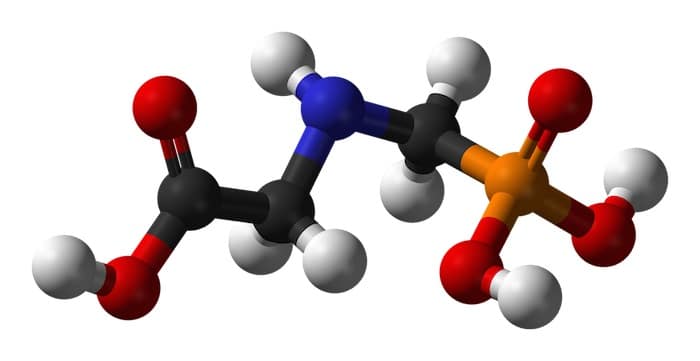A new peer-reviewed study has found that exposure to an ultra-low dose of glyphosate in rats is linked to non-alcoholic fatty liver disease.
In the study*, led by Dr Michael Antoniou from King’s College London and published in the journal Nature, female rats given a very low dose of glyphosate in the form of Monsanto’s Roundup weedkiller daily for two years.
The rats were given 4ng of glyphosate per kilo of bodyweight daily, an amount which is 437,500 times less than permitted levels in the US and 75,000 times less than those permitted in the EU.
The authors found that: “Overall, metabolome and proteome disturbances showed a substantial overlap with biomarkers of non-alcoholic fatty liver disease and its progression to steatohepatosis and thus confirm liver functional dysfunction resulting from chronic ultra-low dose GBH [glyphosate-based herbicides] exposure.”
“The findings of our study are very worrying,” said Dr Antoniou, “as they demonstrate for the first time a causative link between an environmentally relevant level of Roundup consumption over the long-term and a serious disease – namely non-alcoholic fatty liver disease. Our results also suggest that regulators should reconsider the safety evaluation of glyphosate-based herbicides.”
The study authors highlighted the fact that GBH such as Roundup are the major pesticides used worldwide and that residues of GBH are routinely detected in food and drinking water.
Commenting on the study, Peter Melchett, Soil Association policy director, said: “It is extraordinary that the world’s most widely sold weedkiller, glyphosate, in use for decades, has only now been recognized as a cause of the liver disease NAFLD (non-alcoholic fatty liver disease), which can cause fatigue, weakness, weight loss, loss of appetite, nausea, abdominal pain, spider-like blood vessels, yellowing of the skin and eyes (jaundice), itching, fluid build-up and swelling of the legs and abdomen, and mental confusion. Weedkillers like Roundup (active ingredient is glyphosate) cause non-alcoholic fatty liver disease at very low doses, many times below levels permitted by regulators worldwide. This research is the first evidence of a clear causative link between consumption of Roundup at levels that are found in the real world and a serious disease.”
In a blog, Monsanto called the study “bad science”, saying “it uses flawed data from 2012, which was rejected by the wider scientific community due to a flawed scientific approach”. It added: “Ultimately, this new study’s conclusions contradict numerous independent, peer-reviewed studies and assessments.”
- The study was funded by The Sustainable Food Alliance (US).











